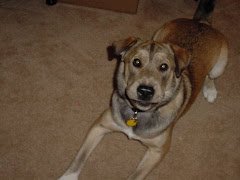Okay, I thought we could begin the "treatments" portion of my blogging with a real demonstration of how many pills I have to take a day. This picture is how many pills I have to take every day:
Doesn't that look like fun? No, it isn't fun, but so far it has been necessary for me to have some semblance of a life over the past few years. All of the treatments for POTS are for symptom relief only (ie none of them cure it in any way) to make life a little more livable for us. This post is going to deal with the prescription meds only, then later I will talk about lifestyle changes and supplements that can be helpful.
Remember, none of what I tell you is meant as medical advice but is for informational purposes only. Do not change your medications (start or stop) without contacting your doctor.
One of the best resources that I have found for POTS drug information is dinet.org. They have a great section that describes the most commonly prescribed drugs for dysautonomia and how they might be helpful, as well as non-medication treatments. I also have a great article by Dr. Grubb about POTS and treatment options on my website www.wheredidigetthislemon.com (Go under Links and down to POTS articles to find his article).
Here is a quick rundown of some of the most common drugs used for treatment of POTS (keep in mind this is a super quick summary and barely skims the surface about most of them):
Beta blockers: since high heart rate upon standing is such a huge component of POTS, beta blockers can be very helpful to reduce heart rate. There are many POTSies that cannot tolerate beta blockers or do not find them to be helpful. They aren't for everyone, but can be a lifesaver for some.
Midodrine or octreotide: these are vasoconstrictors that can be helpful to decrease blood pooling in the legs and can increase blood pressure (helpful for orthostatic hypotension as well)
Florinef: a mineralocorticoid that increases the amount of salt retained by the body, thereby increasing overall fluid volume/plasma volume.
Mestinon: usually given for Myasthenia gravis, but recently has been found to be very helpful for some POTS patients. It inhibits the breakdown of acetylcholine, a neurotransmitter, and helps with neural transmission between nerves.
SSRI's: increase the level of serotonin in the body which enhances how the brain sends nerve impulses; can reduce many symptoms, but not helpful for all patients
Clonidine: centrally acting alpha-agonist that can be helpful for those with sympathetic POTS (helps reduce sympathetic activity), but is also used to treat hypertension and therefore is not for all POTSies
Benzodiazepines (klonopin): anti-anxiety medications (CNS depressants) that can help with anxiety or panic attacks; addictive and not for long term use
Desmopressin (DDAVP): enhances reabsorption of water in the kidneys by mimicking the effect of natural Anti-Diuretic Hormone, therefore can help patients increase water volume and blood pressure.
Erythropoietin (epo): stimulates the production of red blood cells, but can have many dangerous side effects and therefore is usually not given unless other therapy is not effective.
IV saline: can be helpful for some POTSies, but often must be given daily to have any significant benefit.
There are some other drugs that are helpful for POTS but are less directly related to blood volume treatments. Some of these include Proton pump inhibitors like Protonix (to reduce acid reflux, a very common disorder among POTSies), Antihistamines (many of us have allergies), Laxatives like Miralax (many of us have GI motility issues), anti-nausea medications, sleeping pills, etc.
This is not an exhaustive list by any means, just some of the most common treatments. That being said, many POTSies cannot tolerate drugs and must find non-pharmaceutical methods to help their POTS. Sometime in the future, I'll post about non-drug therapies that can be essential for living with POTS.
So what drugs do I take, you ask? Well, we're going to get super personal here, but here goes: many of us have tons of allergy problems, so for those I take Allegra (antihistamine) and Singulair (to reduce allergic rhinitis). I also have an autoimmune thyroid disorder (used to be hyperthyroidism, but now hypo after treatment) so I'm on Synthroid and Cytomel for that. For dysautonomia specifically, I am on Midodrine (to increase blood pressure), Bystolic (to decrease heart rate), Florinef (to increase water and salt retention), Celexa (SSRI to balance neurotransmitters like serotonin), Protonix (to reduce acid reflux), Orthocyclen (to balance hormonal fluctuations). For pain, I am on Tramadol (pain), Zanaflex (muscle relaxant), and Lyrica (neurologic pain). I sometimes take Ambien (sleeping pill) if I can't sleep. Recently, I was also started on Doxycycline(antibiotic) and Rifampin (antibiotic) to treat a Bartonella infection and have to stay on it for 3-8 months! Whew! That's a lot of pills, huh? I'm constantly trying to get off of them or reduce them, but since I am doing a bit better now than I was a year ago, I'm nervous to change too many things at once. And this is JUST the drugs, not the supplements yet. Those will be coming soon...
So are you jealous yet? Hey, I guess I can't complain because these drugs now allow me to stand for up to 5 minutes at a time! I know that this has been a VERY long post, but I wasn't sure how to make it short and still cover most of the meds... Again, next time I'll talk about non-drug therapies for POTS that can be just as helpful as the drugs (give me a little while to put it all together though...this research stuff takes it out of me!)


